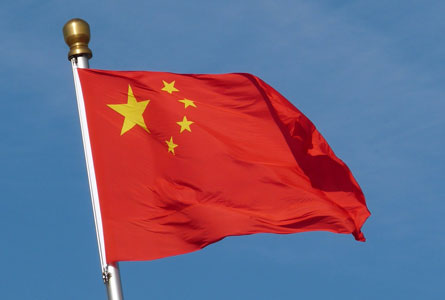This is an oldie – an “old” 2008 article first published on Singapore’s The Business Times. It was written by Joseph Baladi, CEO at BrandAsian, shortly after the staging of the Olympics in Beijing, China. Even if somewhat old, some of the points being made in this article around Brand China specifically are still worth reading today and are of good interest for other countries too.
Several media commentators and others described the impressive staging of the recent Beijing Olympics as “China’s coming out party”. That it was impressive is not debatable – it clearly was. That it signaled China’s readiness to take its place as a leading world power is much more contestable. A more appropriate indicator than the Olympics to assess how far China has come lies in the milk/melamine scandal that has – to date – killed four babies and sickened over 53,000 others. The endless new revelations that appear to be emerging on an almost daily basis provide a much more reliable and stark picture of where China is today and where it is capable of going tomorrow. This unfolding catastrophe is not only about the Chinese milk industry and some rogue companies within it, it is also about China itself: Chinese leadership, Chinese business, Chinese regulation, Chinese enforcement, Chinese oversight and ultimately, but crucially, Chinese values. This is not the first time that Chinese inferior products have resulted in human death and suffering. What makes this particular episode more damaging to China is that like the recent lead contaminated paint on toys, its victims are entirely children. Inevitably, one of the more damaging end-result is how people view Brand China – both inside and outside of China.
Brand Strategy
Two major dimensions appear to characterize the strategy of Brand China. The first is the broader intent by the Chinese government to impress the world and convince it that it is due respect and recognition. The single-minded goal of the Beijing Olympics was to deliver exactly that. Other bigger than life efforts like the recent launch of the Chinese space walk mission is another example in a list that is long and – admittedly – impressive.
There is a tendency for some people in this part of the world – particularly the Chinese – to place significant emphasis on the external side – that which people see. “Face”, is very important. Its legitimate role is reinforced when its manifestation is rooted in substance and is deserving. But when “face” becomes the end in itself, substance is often subordinated and process and diligence is undermined. The net result is an exterior that fools some of the people some of the time or merely temporarily. In many ways, China’s race to the top is an effort to secure “face” around the world. Yes, there are communities of people outside of the country who look at its physical achievements and declare these to be evidence of a country that has changed and is ready for leadership. Indeed these and still other communities openly talk of a changing world order where the balance of economic (and other) power will inexorably shift from the West to the East if not to China itself. The belief is flawed. For every single step forward China makes, it stubbornly falters and makes two backwards. The ascendancy of China (and greater Asia) can only happen if emphasis begins to focus on the substantive rather than the cosmetic. When its public policy changes and trickles down to the corporate sector. When companies embrace purposeful missions and practice declared values.
The Chinese leadership must pause and seriously debate how worthwhile its present mega-project efforts are if its institutions and companies are systematically sidestepping control, oversight and discipline and , in the process, undermining or neutralizing its intended effects. Which brings me to the second dimension of Brand China’s brand strategy – the philosophy and practices of an undetermined portion of its corporate sector.
Three sub-dimensions dominate the mentality of some companies in the corporate sector:
- (1) Price: offer it more cheaply than anyone else;
- (2) claim “best quality”, and
- (3) cut corners wherever possible – human resources, operations and quality.
With particular regard to the last point, apart from aiming to squeeze the best possible margins, many managers actually take pride in demonstrating how clever and resourceful they can be in achieving this.
At the present moment Brand China is reeling. What is at stake is nothing short of what people make of Chinese values. Chinese products – good and bad, because they will be lumped together – (and by extension, the broader China Brand) are traveling a downward spiral of lost trust and confidence among people around the world. The Made in China label is facing an abyss that is deep and damaging. While Brand China may totally command the “price” and “cheap” space, this will increasingly become less and less valuable. People – around the world – will demonstrate with their wallets that the other price they are being made to pay is too high. The ability of the brand to eventually come to connote quality, safety, workmanship and all the other characteristics that define aspirational brands, will prove to be a much bigger challenge than the Japanese experience of a half century earlier. Part of the reason for this lies in two central drivers that strong and great brands share: values and trust. Whilst these words tend to generate a great deal of lip service in Asia, they represent the salvation and eventual transformation of Brand China. The work ethic will need to change from one that is singularly and uniquely focused on the cosmetic external and money and profits to one that embraces process and systems, and values responsible and accountable management. If this does not happen an extraordinary thing may, for the first time, materialize: some brands may feel compelled to actually print “Not Made in China”, if only to reassure consumers.
For all of the effort, time and money that the Chinese government invested in preparing and staging the Beijing Olympics, the significant positive impression it created on the minds of the thousands who visited it and the millions who watched the spectacle from television sets, has been completely and utterly squandered by this scandal. I have some advice for those responsible for managing Brand China: get your brand champion – President Hu Jintao – to go on air yesterday and personally reassure people around the world that change will take place and that he will make it happen… that the values of China and of its products will not be undermined or hijacked by irresponsible or criminal elements. While he is on-air he should also make a point of sincerely and profoundly apologizing to the parents of the four babies who died so tragically and needlessly. Given the present circumstances this – ironically – will do more to impress the outside world and rescue Brand China than the astronomically expensive Olympics managed to do. A sobering thought for the decision makers of this important country.
Article by Joseph Baladi





One comment
Comments are closed.